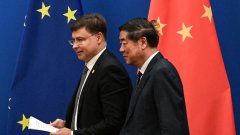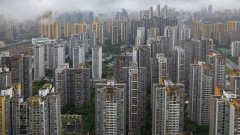Singapore Minister of Trade and Industry, Yan Jinyong, called on "Ayana III" (China, Japan, and South Korea) regions to resist internal rotation trends, further strengthen the regional supply chain industry chain cooperation, and do a good job of digital economy and green development areas.Prepare.
Yan Jinyong last Friday (July 29) through pre -recorded videos, delivered a speech at the Asian Diman (China -called ASEAN) - China, Japan and South Korea Industrial Chain Supply Chain Combination Forum and East Asian Entrepreneurs Taihu Forum.
He pointed out that industrial connection and supply chain have formed the cornerstone of the modern economic and trade network. In recent years, the crown disease epidemic and geopolitical tensions have caused the supply chain to be blocked, indicating that strengthening cross -border cooperation in supporting economic development and improving people's living standardssex.
Yan Jinyong said that in 2020, the trade volume between Asia and China, Japan and South Korea reached 875 billion US dollars ($ 1.2 trillion), close to one -third of the total trade in the Asia Gyanan region.In order to develop trade partnerships and ensure its sustainability, countries must resist internal rotation trends and strengthen regional cooperation.
Regional Comprehensive Economic Partnership Agreement (RCEP) officially took effect in January this year.
Yan Jinyong pointed out that with the last batch of national approval agreements, RCEP can give full play to the potential and provide more opportunities for the region.He encouraged enterprises to learn more about the RCEP clause in order to benefit from it.
Yan Jinyong also suggested that countries focus on emerging fields such as digital economy and green development.He said that by 2030, Southeast Asia's digital economy is expected to reach $ 1 trillion, and the green economy industry can also create a $ 1 trillion business opportunity every year.
He said: "With China, Japan, and South Korea, the three regions of Asianga will provide global enterprises with attractive trade and investment opportunities."
Hu Chunhua: China is willing to continue to improve the level of construction of the free trade zone with all parties
Hu Chunhua, deputy prime minister, also emphasized through a video speech, emphasized that the current international situation is intricate and the international industrial chain supply chain is safe and stable.It is critical to strengthen the ability to resist risks and promote long -term prosperity of the region.
Hu Chunhua shows that China is willing to continue to improve the level of the regional free trade zone construction with all parties, strive to strengthen the overall advantages of the regional industrial chain, further strengthen the role of interconnection and support, and strive to cultivate new cooperation momentum.
This forum was co -sponsored by the Ministry of Commerce of China and the Jiangsu Provincial Government. The attendees attended the forums including the heads of relevant Chinese ministries and local governments, the representatives of the Asia Jia'an, the Japanese, the South Korean embassies and consulates and the business association, and the regional state -owned business community.
Yan Jinyong suggested that countries focus on emerging fields such as digital economy and green development.He said that by 2030, Southeast Asia's digital economy is expected to reach $ 1 trillion, and the green economy industry can also create a $ 1 trillion business opportunity every year.




